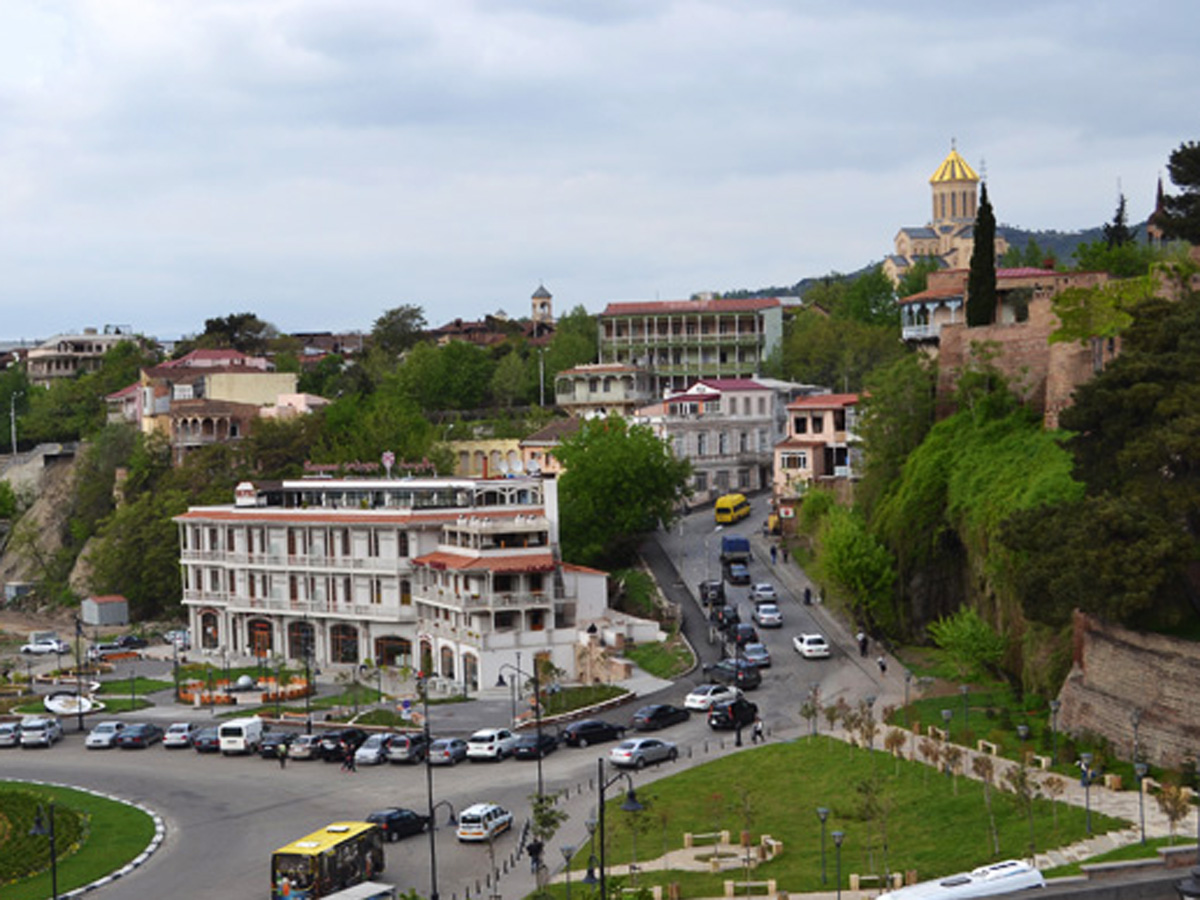Baku, Azerbaijan, October 22
By Azer Ahmadbayli – Trend:
During his visit to Tbilisi in late May, Armenian Prime Minister Nikol Pashinyan called Georgia a brotherly country. But is it really?
In a week, on October 28, presidential elections will be held in Georgia. The pre-election campaign of candidates is in full swing.
Various parties, movements and just individuals, who are well-known in the country, express their views through the media, creating an overall picture of sentiments prevailing in Georgian society.
In this regard, interesting is the address issues by the so-called “Javakhk Diaspora of Russia” - an entity of dubious origin created to, allegedly, promote interests of Armenian minority living in the Georgian region of Samtskhe-Javakheti, and which somehow managed to obtain state registration in the Ministry of justice of Russia.
Apart from generalities about the hope for fair and transparent elections, the “Javakhk Diaspora of Russia” calls on its compatriots to cast their votes for those candidates who have certain priorities included in their election program.
Here are a few of them:
- Decentralization and granting of greater self-government rights to “Javakhk” [Samtskhe-Javakheti region];
- Establishment of a demilitarized zone in the territory of “Javakhk”;
- Restoration of lost citizenship to ethnic Armenians of “Javakhk” and permission for dual citizenship;
- Granting the Armenian language status of regional;
- Return of Armenian churches and religious monuments confiscated during the Soviet period to the Armenian Apostolic Church;
What does, for example, establishment of a demilitarized zone in the territory of “Javakhk” mean?
According to international law, a “demilitarized zone” is an area, agreed upon between the parties of an armed conflict, which cannot be occupied or used for military purposes by any party to the conflict.
Why is it necessary to establish such a zone and on what basis would the future President of Georgia be able to do it?
This could all look pretty harmless if it weren't for lessons of history. The Nagorno-Karabakh conflict between Armenia and Azerbaijan had been initiated with similar claims.
The issues of separatist Abkhazia and the Tskhinvali region, as well as the return of hundreds of thousands of Georgian refugees there, remain the most painful problem for Georgia.
Since 2008, Armenia, being, as it says, “brotherly” country to Georgia, voted against the UN Security Council’s several resolutions on the return of Georgian refugees to Abkhazia and the Tskhinvali region.
Also, Armenia doesn’t shy from raising the concern of opening transport corridors through the same separatist entities to Russia from time to time before the Georgian government.
Georgians still well remember that in Abkhazia the Armenian militants fighting alongside separatist troops were exceptionally atrocious against the civilian Georgian population.
Most of the Western audience, which oftentimes is affectionate towards Armenia, is not aware of these facts.
It’s hard to explain to the Georgian people why it is necessary to grant greater self-government rights to the region or give back Georgian churches, which Armenians consider their own.
Zealous representatives of the Armenian nation have long been making provocative statements that the Georgian region of Samtskhe-Javakheti is actually one of the regions of the “Greater Armenia,” and that Armenians are being harassed there, and that in case of conflict Georgia will not be able to stop it.
Head of the “Javakhk Diaspora of Russia”, Aghasi Arabyan, openly speaks about that, trying to remove responsibility from Armenia in advance: “many important issues for the indigenous Armenian population remain unresolved in Javakhk and, accordingly, the probability of a conflict remains. For its part, the Armenian leadership is trying to do its best in order not to stimulate and create conditions for provoking such things. However, if this had happened, the Armenian Diaspora, which is beyond the control of the authorities of the Republic of Armenia, will definitely join the conflict. Then the process will simply become irreversible and Armenia, with the best will in the world, will not be able to stop it.”
All actions of the leaders of Armenian separatist minorities in the neighboring countries are coordinated from a single center – the capital city of Armenia, and are subject to a single scenario - the annexation of lands for the implementation of the so-called “Greater Armenia” project.
However, the instinct of self-preservation does not allow Armenia and the Diaspora to start the process of alienation of the Samtskhe-Javakheti region from Georgia right now, limiting themselves for the time being with claims that will help prepare fertile ground for this in the future.






